| |
December 2023 |
|
|
| |
What is Unique about the Intensive Graduate Activities |
|
| |
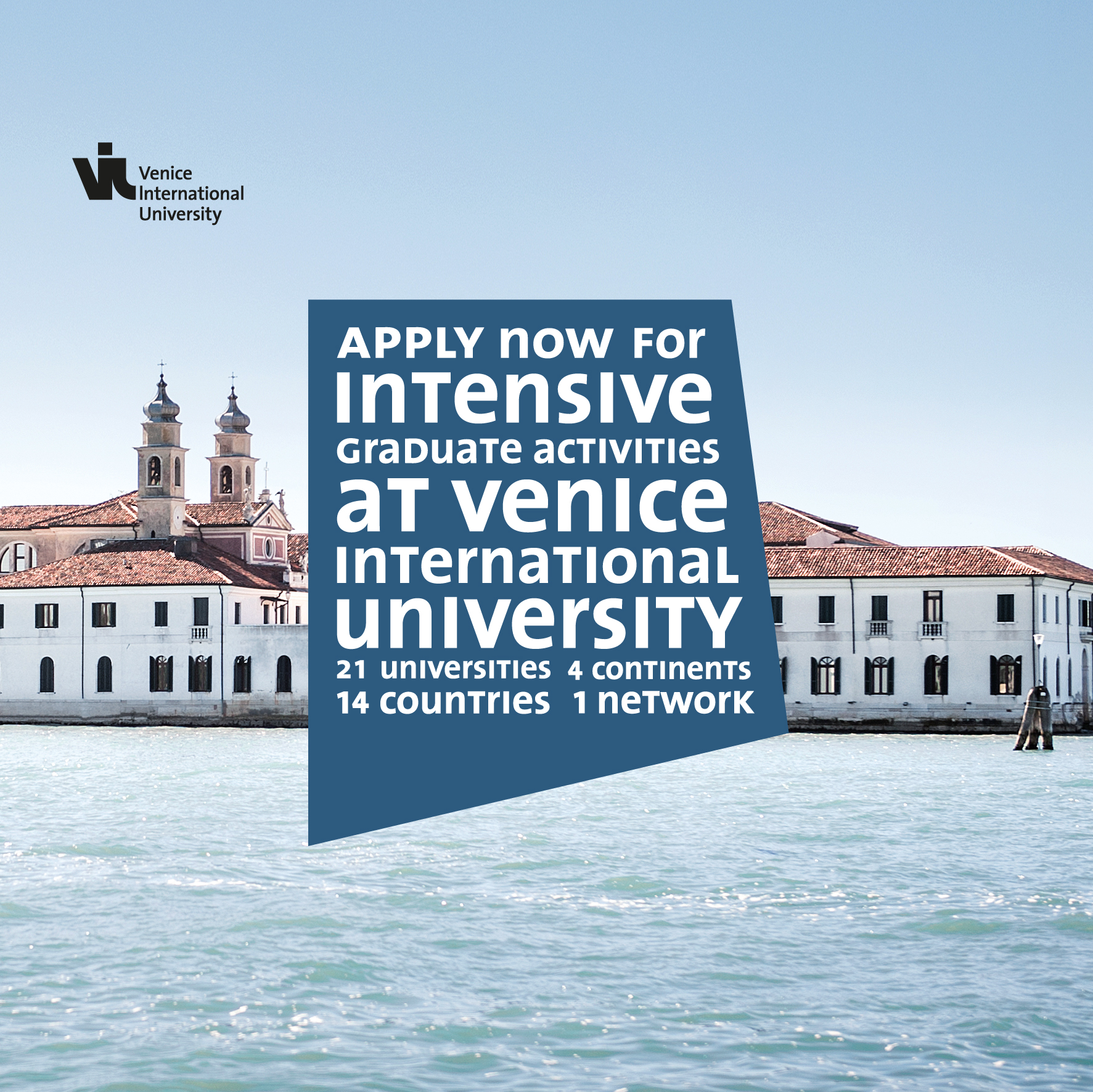 |
|
| |
| |
The Intensive Graduate Activities at Venice International University include PhD Academies, Graduate Seminars, and Summer Schools. They are an opportunity for students and professors of the member universities to experiment with interdisciplinary approaches, to collaborate with peers from around the world, to tackle transversal topics, and to undertake scientific challenges in innovative ways.
This issue is dedicated entirely to the Calls for Application for VIU Intensive Graduate Activities in 2024. Hear about the experience from students and professors on our YouTube channel.
Watch the video on YouTube
|
|
|
| |
|
|
| |
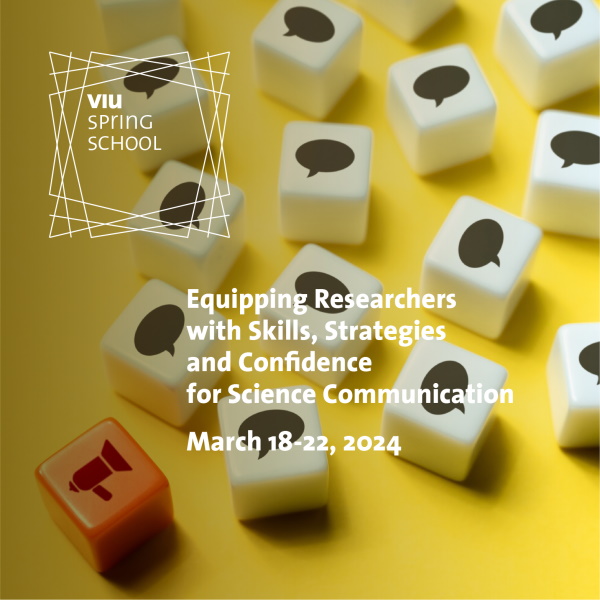 |
|
| |
| |
Communicating research to public and policy audiences is becoming a key element of researchers’ work, but can be challenging when researchers lack the required skills and have little experience of engaging with audiences outside the academic arena.
It is essential to make researchers more aware of the importance of public science communication and engagement, especially since these activities are increasingly demanded by research funders and policymakers as a pathway towards societal impact of research. But, to be effective public communicators, researchers need training to equip them with the key competencies and the confidence to communicate strategically using a wide range of tools and channels, and evaluating impact along the way.
The School draws upon the state-of-the-art of science communication literature as well as on relevant best practice in the field, combining lectures, exercises, simulations, discussions, case studies, and site visits. All participants will also have an opportunity to present their own research.
Suitable for: researchers and graduate students from all research disciplines across Natural and Social sciences, Engineering and Humanities.
Application Deadline: January 15, 2024
Visit Webpage
|
|
|
| |
|
|
| |
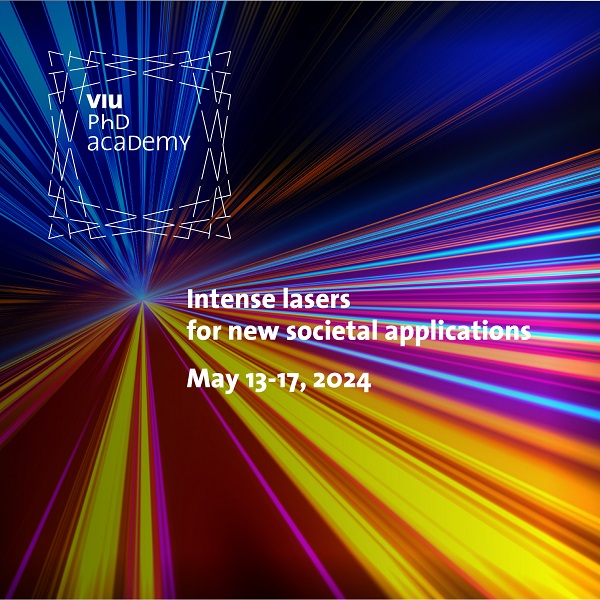 |
|
| |
| |
The investigation of laser-accelerated particle beams and their use is currently challenging many research laboratories worldwide, in particular for its manifold applications such as in the medical field, fusion energy, injectors for larger scale accelerators, astrophysics, and materials science. The enormous potential of high power laser applications has been recognized for more than a decade, when the European Commission and other countries have financed numerous high power laser infrastructures totaling several billion dollars as investment. Among them are the Extreme Light Infrastructure (laser infrastructure constructed in Hungary, Czech Republic and Romania), CALA in Munich, Germany; APOLLON, Palaiseau, France; CLPU, Salamanca, Spain; Eupraxia, Frascati, Italy, etc... Hence, there is a strong international movement to promote what will be the applications of tomorrow.
This series of lectures aims at giving a broad overview of intense lasers and their applications, focusing in particular on laser plasma acceleration, from the modeling using theoretical models and large-scale numerical simulations, to the experimental techniques used to study and optimize the processes (targets, diagnostics, etc.). We will also integrate lectures devoted to applications of these intense lasers and their secondary sources, highlighting particularly 2 applications in the sectors of healthcare, manufacturing, energy and arts. In a multidisciplinary approach we will emphasize how the various perspectives to use high intensity lasers is enhancing creativity and innovation. We plan also to include training about transversal skills in order to better prepare scholars for insertion into the job market.
Suitable for: PhD students, post-docs and young researchers with background in Sciences, Physics, Chemistry, Biology, Health Sciences, Materials Sciences, Cultural Heritage, and Astrophysics. Applications from excellent candidates from non-member institutions will be also considered and evaluated.
Application Deadline: January 31, 2024
Visit Webpage
|
|
|
| |
|
|
| |
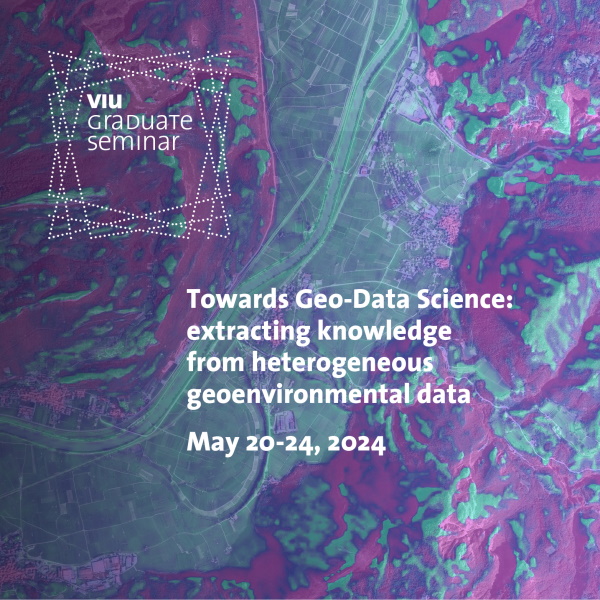 |
|
| |
| |
The adoption of data science in environmental and earth sciences, physical geography, humanities, and social sciences, has begun to emerge as a self-contained discipline only recently, demonstrating exceptional efficiency in addressing the complexity of the investigated phenomena. This trend encourages contemporary scientists to collaborate with disciplines that may initially appear distant from their own expertise. Such an interdisciplinary openness is of growing significance as society struggles to respond to the implication of anthropogenic pressures on different issues, including natural hazards and climate change, or the harmful impacts of human activities on biodiversity, water and air quality, and human health. Therefore, there is a real need for the development of novel techniques that facilitate the extraction of insights from data and the subsequent transformation of this information into actionable knowledge.
The main topics will be:
- Theoretical perspective of the role of geoenvironmental data and other source of information for the characterization, analysis, and modelling of the geosphere and the anthroposphere, from historical times to the present.
- The derivation of quantitative data from historical documents will also be introduced in this first part of the seminar, crucial for stimulating open discussions among the participants.
- Practical concepts and environmental applications of the main techniques of analysis in Geo-Data Science, in particular geostatistics and machine learning.
Suitable for: advanced Master, early PhD students and junior researchers in Earth/Environmental Sciences, Biology and Spatial ecology, Physical geography, and equivalent disciplines. Students in Architecture, Humanities, Planning and Arts related disciplines can also apply. The participants should have a good knowledge of mathematics and statistics; skills in geographical information systems and notions in R programming language are also required.
Application Deadline: January 31, 2024
Visit Webpage
|
|
|
| |
|
|
| |
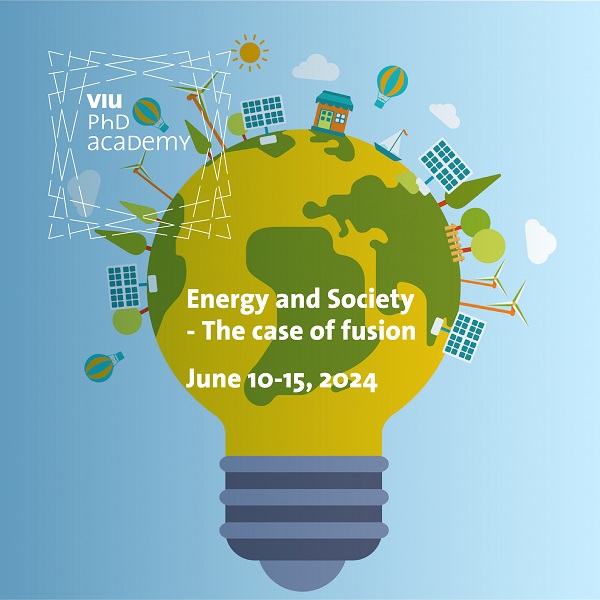 |
|
| |
| |
How to balance our energy needs with concerns for climate change, strategic dependence on a small number of fossil fuel suppliers and for energy poverty is one of the most profound and urgent challenges today.
As global economies move towards lower carbon energy futures, there is emphasis on developing new technologies. But the challenge of transitioning to a more sustainable, resilient, and equitable energy future is not just a technical one. It also requires to address collectively questions on how to create a better energy future for us all.
This calls for connecting scientific developments with social, economic, cultural and ethical considerations. Finding the routes to a sustainable energy future is therefore a multi-disciplinary task, where synergy among science, humanities, economics and social sciences is essential.
These connections are not often addressed in the training of the future players in the energy arena, like scientists, engineers, economists, environmental scientists, sociologists, political scientists, diplomats, journalists, communicators.
This course will provide fellows from various disciplines with a training opportunity, which merges science with society and delivers a grand view on the future of energy.
This project connects conversations about the development of energy technology, with wider ethical implications of energy that consider its social, environmental, and geopolitical impacts. We will use controlled thermonuclear fusion as a case study.
Suitable for: PhD students, post-docs, and junior researchers, in the fields of hard sciences, engineering, social studies, economics, political sciences, diplomatic studies, psychology, philosophy, and literature.
Application Deadline: February 29, 2024
Visit Webpage
|
|
|
| |
|
|
| |
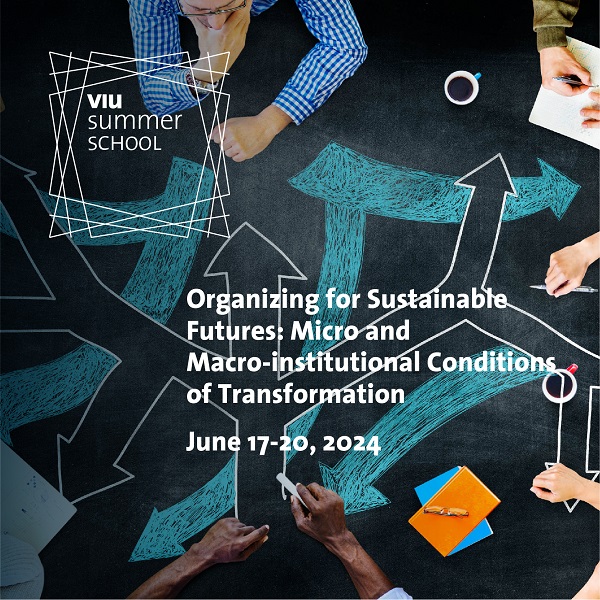 |
|
| |
| |
In its eighth edition, the summer school aims to develop ideas that promote a more sustainable future by bringing together young scholars from all over the world to discuss their ideas on the Grand Transition of our society from the microlevel of individual decision-making to the organizational and the societal level.
It gives young scholars the opportunity to discuss with eminent scholars in management theory and to test their ideas and present their work. Participants will become familiar with recent research from a broad set of disciplines.
They will work on their ability to engage in the transdisciplinary discourse which is required for the development of innovative answers to grand sustainability challenges.
Suitable for: current PhD students, post-doc scholars and young researchers in Management, Strategy, Organization Theory, Finance, Economic Sociology, Political Science, Philosophy, Psychology, and related disciplines from universities worldwide.
Application Deadline: March 1, 2024
Visit Webpage
|
|
|
| |
|
|
| |
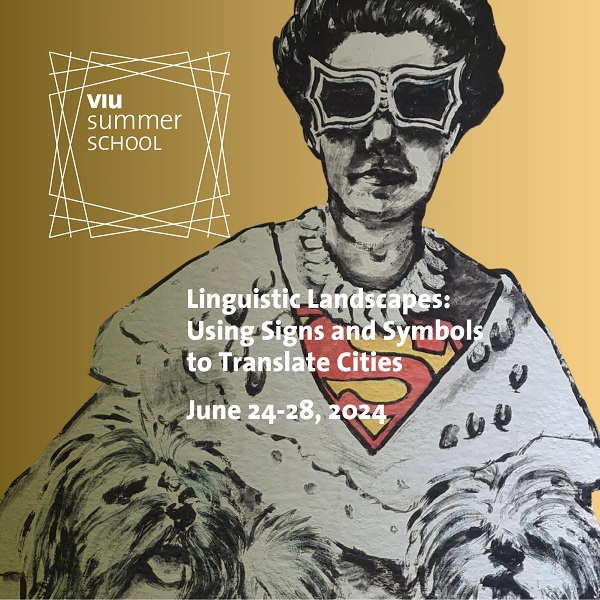 |
|
| |
| |
This course focuses on the growing interdisciplinary field of Linguistic Landscapes (LL), which traditionally analyses the “language of public road signs, advertising billboards, street names, place names, commercial shop signs, and public signs on government buildings”, usually as they occur in urban spaces.
More recently, LL research has evolved beyond studying only verbal signs into the realm of semiotics, thus extending the analytical scope into the multimodal domain of images, sounds, drawings, movements, visuals, graffiti, tattoos, colours, smells as well as people.
Students will be informed about multiple aspects of modern LL research including an overview of different types of signs, their formal features as well as their functions.
Suitable for: current final year Undergraduates (finalists, BA3), MA and MPhil/PhD Students in Linguistics, Sociology, Classical Studies, Business Communication Studies, History, Cultural Studies, Political Studies, Translation Studies or any other related discipline.
Application Deadline: March 5, 2024
Visit Webpage
|
|
|
| |
|
|
| |
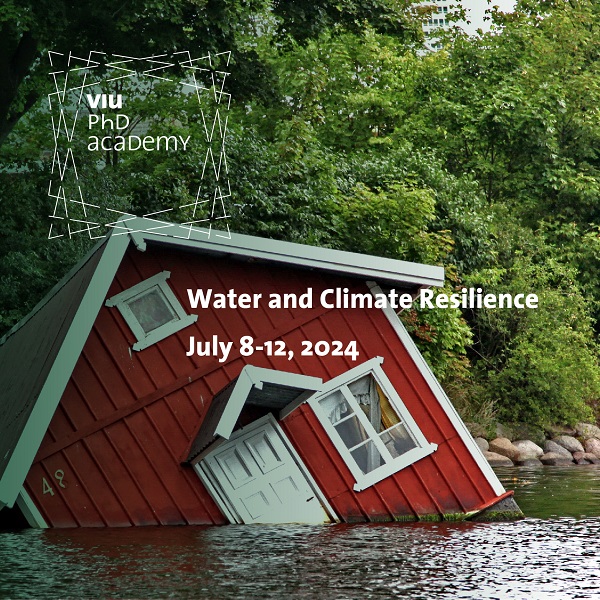 |
|
| |
| |
Climate change has altered the water cycle from local to global scales, leading to more frequent extreme hydrometeorological hazards that affect the environment, ecosystems, and socio-economic activities worldwide.
During the first two decades of the 21st century, more than 7000 natural hazards occurred, claimed 1.3 million lives, and affected over 4 billion people around the world, leading to USD 3 trillion economic losses. The majority of these disasters were weather-related and their occurrences have increased significantly, compared to the last two decades of the 20th century.
In addition, many extreme hazards are likely to trigger other types of hazards, including compound events that exacerbate the cascading impacts drastically, with water being the core element associated with various types of hazards. To investigate the risks that climate change poses to the human society and the natural environment, it requires a good understanding of the involved processes and causal connections from interdisciplinary perspectives.
Thus, the next generation of researchers and engineers should be trained to equip such capacity to integrate methodologies and tools from various fields for developing solutions to strengthen climate resilience.
The main objectives of the PhD Academy are bringing multidisciplinary academics from the VIU network together to widen early career researchers’ vision of global challenges and offering transversal skill training for supporting the ECR’s career development.
Suitable for: PhD students, post-docs, and junior researchers in environmental and social sciences. Applications from excellent candidates from non-member institutions will be also considered and evaluated.
Application Deadline: March 10, 2024
Visit Webpage
|
|
|
| |
|
|
| |
 |
|
| |
| |
Science Diplomacy is a tool that recognizes science as a process for pursuing evidence and diplomacy as a process for dialogue and cooperation between different stakeholders. In our increasingly interconnected world, there is a growing need for science diplomacy as we are confronted by issues concerning agriculture or trade, automation or cryptocurrencies, peace & security, global health pandemics, and climate change, among many other complex challenges. Our decision-making power is strengthened or weakened by the relevance, timeliness, reliability, and communication of information in a fast-paced changing environment. While academia includes specialties in translational science, public policy, health policy and other policy-related fields, these programs do not address the needs of the vast matrix of other scientific disciplines to provide students with training and tools to effectively partner and communicate with non-scientists, whether they are policy-makers, community leaders or the general public. This is Science Diplomacy at its core-partnerships to eliminate cultural, sectoral, and knowledge barriers.
Suitable for: Graduate students (Master’s and PhD) from various disciplines: Global / Public Health, Environmental Science, Economics & Political Science, Anthropology, Sociology & Demography, Biology, Engineering, Clinical Medicine. Advanced Undergraduate students will be also considered.
Application Deadline: March 15, 2024
Visit Webpage
|
|
|
| |
|
|
| |
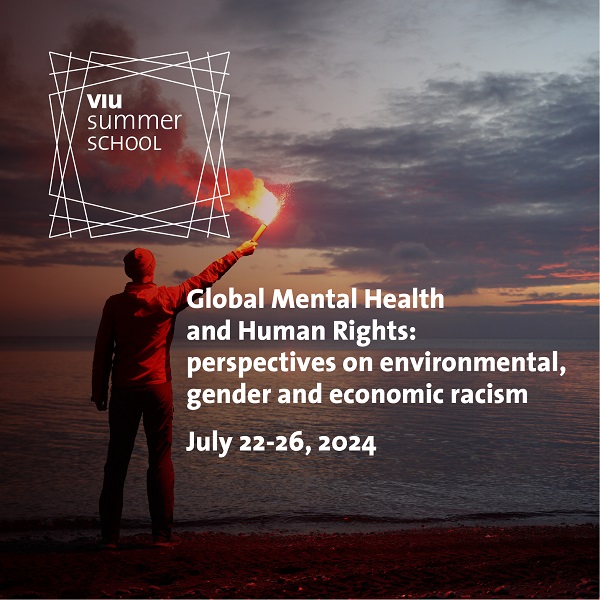 |
|
| |
| |
Mental health and human rights are dramatically interlocked constructs. There is no mental well-being without peace and equity and vice versa. Mental prosperity seems to be thought of as a consolidated right just for privileged groups; in contrast, oppressed and marginalized individuals most often resulted in being blamed for their incapability to handle their living conditions and adjust to challenges and adversities because of a lack of civilization, poor personal and social capital, or inadequate relational skills. More recently, critical global mental health and global public health have recognized the urgent need to analyze and intervene in the political determinants and antecedents of cogent global challenges of our contemporaneity, such as environmental, gender, economic, and ethnic racism. In addition, transnational and intersectional feminist and postcolonial perspectives have exposed patriarchal whiteness as the dominant grammar informing the mainstream of psychology and psychiatry, unveiling the extractivist strategies of the so-called essentialist culture and performing gender-sensitive protocols. Indigenous and postcolonial participatory approaches propose themselves as a genuine alternative to conceptual and intervention models aiming at re-socializing and readapting people to iniquitous and unjust classist and racialized living conditions.
Suitable for: PhD students and practitioners working in mental health, international relations, law, gender and race studies, social work, education, psychology, psychiatry, environmental and climate studies, political science, public health, nursing, global health, and mental health. The school is also open to activist individuals and groups, policy and decision-makers, NGOs and CBOs, stakeholders and influencers seeking to strengthen their knowledge and know-how on global mental health, human rights, and allied disciplines.
Application deadline: March 25, 2024
Visit Webpage
|
|
|
| |
|
|
| |
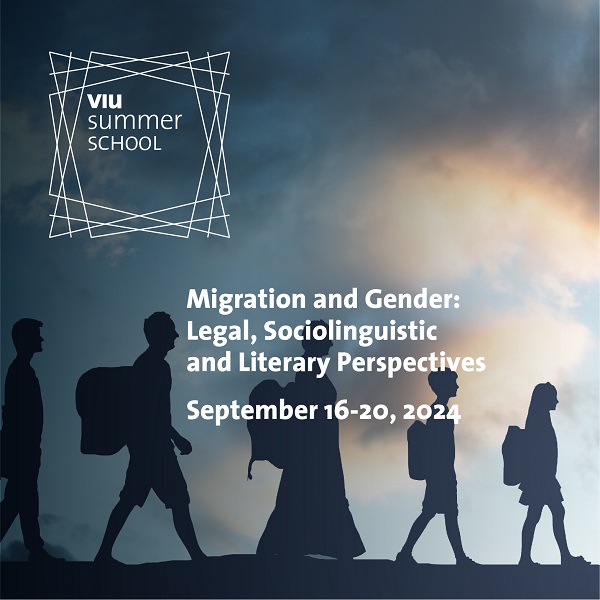 |
|
| |
| |
This Summer School offers an interdisciplinary approach to the ways in which migration intersects with gender. Gender is a constitutive element of migration. The course will discuss both this idea, and reversing the formula, it will examine the role of migration in shaping gender, understood as relational and performative. A particular focus will be on identity in relation to human rights and law, language, labor and culture. The course is an innovative exploration among three scholars in legal studies, literature and sociolinguistics, and the students.
Each discipline brings a unique perspective on the problem and set of instruments to analyze and deepen our understanding of migration and gender.
The program is particularly timely in this moment of history, in which migration is transforming societies and shaping gender. The course will model the ways in which the humanities and the imagination as well as the social sciences might inform legal processes or contour legal decisions. This will play out in two ways: first in our class discussions, and second through the students’ experiences of rewriting a legal decision from the perspective of what they have learned and discussed. In short, we hope that this course will educate a young generation of lawyers, academics and activists by raising awareness of many issues at the intersection of gender, migration and law.
Suitable for: current MA and PhD Students in Sociology, Gender Studies, Literature, Human rights, Law, Labor and Cultural Studies.
Application Deadline: May 21, 2024
Visit Webpage
|
|
|
|